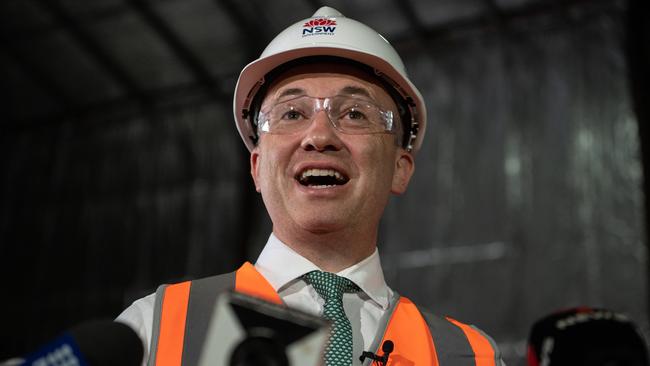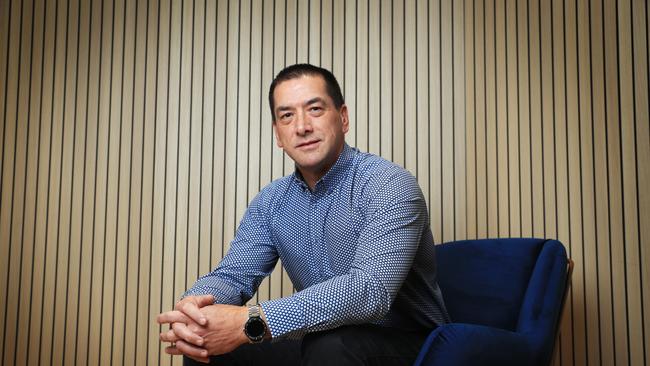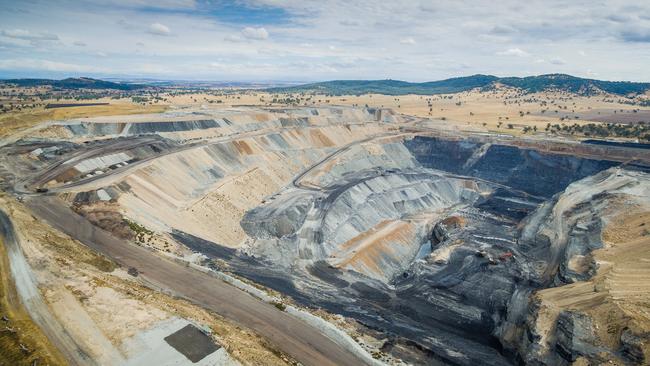NSW fires the starter gun on coal reservation and reduces the amount required
The NSW government has gone ahead with its requirement for coal exporters to reserve output for domestic use but has again cut the amount expected.

The NSW government has gone ahead with its plans to force the state’s coal exporters to reserve a portion of their output for the domestic market, but has again shaved the amount it will requisition for local power stations.
NSW Treasurer and Energy Minister Matt Kean issued the orders on Thursday, forcing the state’s coal miners to offer about 19.8 million tonnes of coal into the domestic market each year.
That figure is down from the 20.5 million tonnes included in draft orders circulated to coal miners last week, and well short of the 22 million tonnes of coal government officials said they were seeking in late January, when an expansion of the scheme was first floated.
Orders issued by Mr Kean in late December required miners already supplying to NSW coal-fired power stations to reserve about 18.6 million tonnes of thermal coal for domestic supply, at a maximum price of $125 a tonne for coal suitable for use in NSW power stations.
Mr Kean on Wednesday said the new orders would not force coal exporters to break existing agreements, including so-called “evergreen” supply contracts with major customers and would “level the playing field” among coal miners.
“Where possible, coal mines will be required to provide power stations with the amount of coal they have supplied in the past, and export-focused mines will be required to provide additional coal needed to meet any difference,” he said.
“Export-focused coal mines that are now covered by the expanded directions will be required to provide no more than 5 per cent of their production.”

Companies which are exporting high-grade coal unsuitable for NSW coal-fired power stations will be able buy substitute coal under the new rules.
Mr Kean claimed the price caps and previous supply orders had cut electricity price futures by 41 per cent since their introduction.
But Glencore, the only company to have its requirements increased since the previous draft – by 20,000 tonnes to 4.9 million tonnes – immediately hit out at the new requirements.
“We don’t know how the NSW Treasurer can talk about levelling the playing field for coal companies. Under the updated directions Glencore, which produces about 30 per cent of NSW’s thermal coal, is expected to provide up to 65 per cent of the coal shortfall,” a spokesman said on Thursday.
But, speaking after Whitehaven Coal delivered its half-year financial results on Thursday, managing director Paul Flynn said he still believed the scheme was an inefficient way to drive down power costs for householders and businesses.
“If your objective is to provide relief to electricity payers, then this is a very indirect way of achieving it. Because essentially, you’re transferring wealth from the shareholders of the various suppliers, to the shareholders of the various generators, and asking them then to ensure that they pass on that same benefit to bill payers,” he said.
“That’s a very indirect route.”
The finalisation of the reservation scheme overshadowed a bumper profit for Whitehaven, with the company’s shares down on Thursday despite the company booking a $1.8bn net profit for the first half of the financial year, and declaring a 32c a share interim dividend.

Whitehaven will be required to offer 800,000 tonnes of coal a year into the domestic market under the new rules, down from just over 1 million tonnes suggested in the previous draft of the orders.
Yancoal will be required to supply 1.25 million tonnes, down from 1.6 million tonnes, with BHP’s Mt Arthur mine required to offer 700,000 tonnes into the domestic market.
Yancoal said in a statement to the ASX the requirement to supply local power stations posed the company “significant logistic challenges” that would add additional cost to the impost of the price caps and lost international pricing.
Whitehaven shares closed down 23c to $7.96 on Thursday, with Yancoal down 11c to $5.66 and BHP up 18c to $48.12.


To join the conversation, please log in. Don't have an account? Register
Join the conversation, you are commenting as Logout